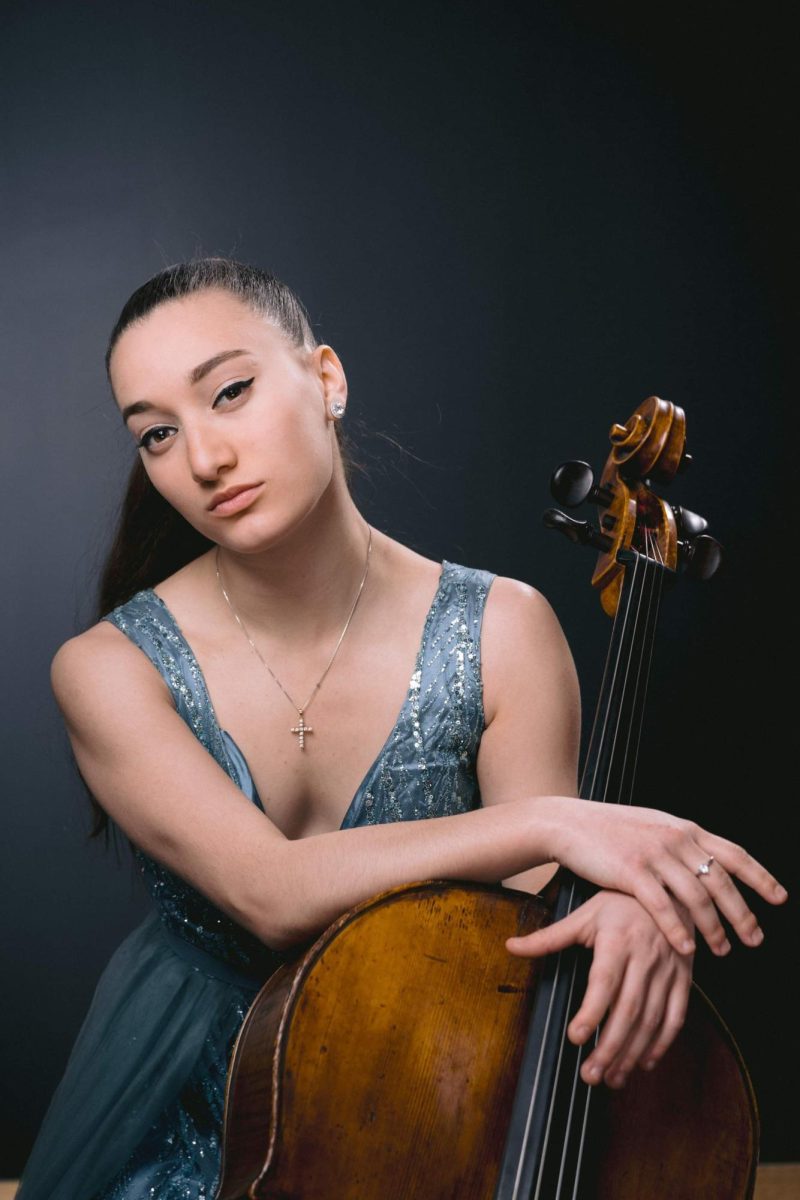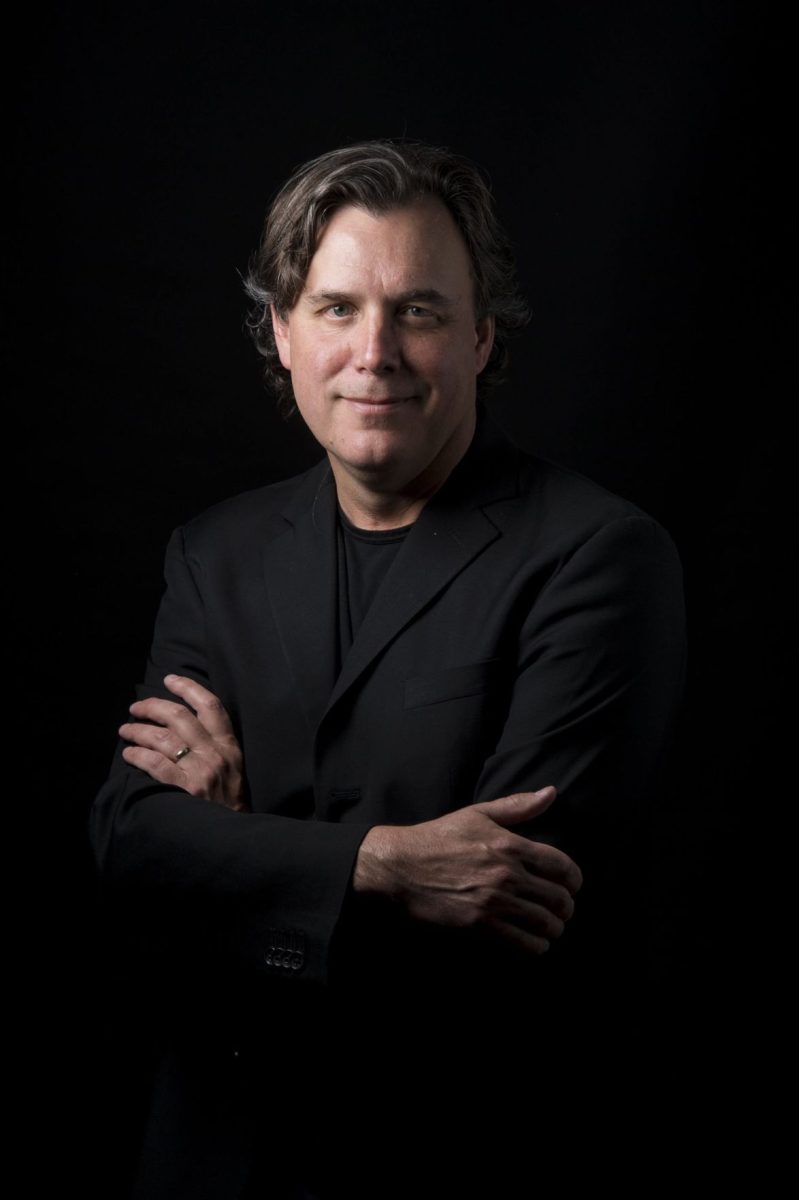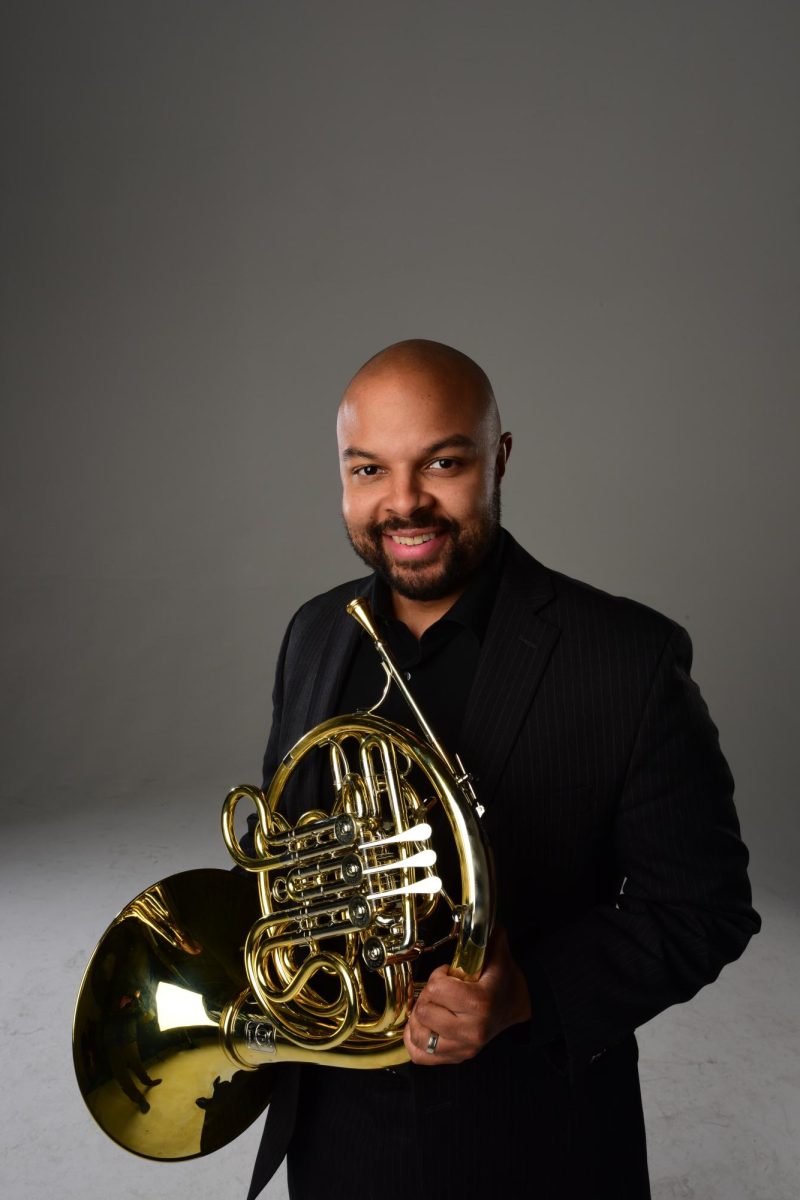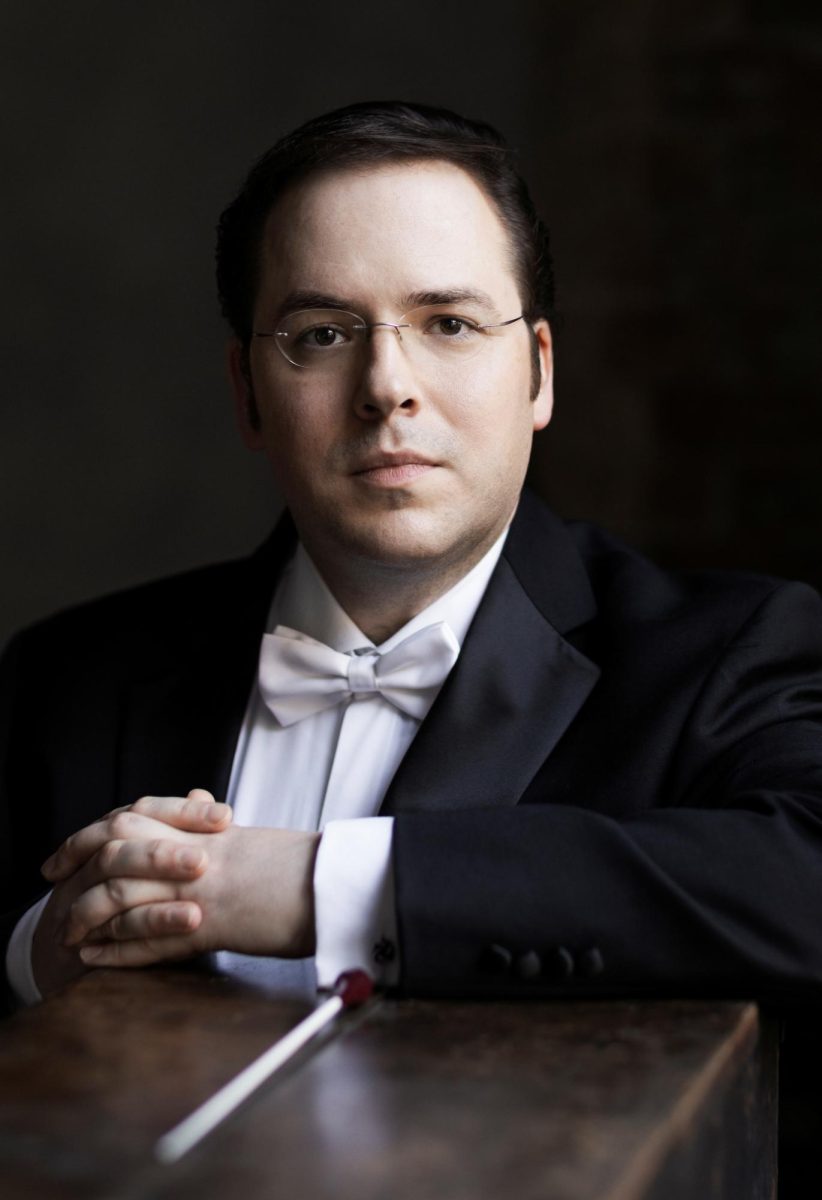Maria Elli Petridou is a second-year cellist from Thessaloniki, Greece. On Nov. 13, she was awarded first prize in the Philadelphia International Music Festival’s Virtual Concerto Competition. Petridou performed Haydn’s Cello Concerto No. 1 in C Major. One of three musical siblings, Petridou began playing the cello at age four, encouraged by her parents, who are both professional dancers. Petridou dreams of a career as an international soloist.
This interview has been edited for length and clarity.
How did you begin playing the cello?
I started playing the cello at the age of four. I was born with the movement of the cello already inside me. My mother first introduced me to the world of music, even though neither of my parents were musicians. My father used to be a soloist at a classical ballet. Now he’s a professor and choreographer. My mother used to be a dancer. That is how they met. My first competition was at the age of five. So I was really passionate about competitions, and this was the path that my parents gave me; every year I did competitions.
What is your favorite part of performing? Why are you so enticed by a solo performance career?
The best part is the preparation. I don’t think that you must have the mindset of a winner. You may say, “I want to win the first prize,” or whatever you want to win, but then you must work hard. You must make many sacrifices. You must be very disciplined, and you must aim for the best. You must be really obsessed and passionate about what you do.
I strongly believe that in order to have a soloist career, you must be really passionate about what you do. In order to do it, you must put in a lot of hours, a lot of effort. It is a lot of hard work. Many people think that hard work is just working hard. But it’s not only that, it’s also about your background, where you come from. It’s not necessarily something that is taught. This type of career is really difficult, and not a lot of people can do it. The reason I love it is because I get to meet different audiences. I love my audiences. I love them. They are the best part. The moment that I go on the stage, that first step is the best part. I’m always sad when I have to leave. I’m always happy to meet new audiences during and after a performance. I love when they come and say hello, and everyone is so different. And traveling, I love traveling. It’s exciting to see different cities, different countries, and to learn different ways of thinking. It’s so important. And I think I want to collaborate with big orchestras. That’s why I do competitions. It’s all part of me. It’s what I want to do. That’s why I’m really passionate and obsessed.
How do you describe your brand as a musician, and how do you go about creating that brand?
Honestly, I have a really powerful personality. I started working on confidence. To be confident is something that I think is unique, rare. I’m really on the ground, as we say in Greece — really humble — because you must know your worth, but you must keep working hard. And I work really, really hard for what I want to do for a soloist career, which is also rare nowadays — to be disciplined and hard working. It’s really rare. Also the appearance and so on. Everything must be perfect, which is also rare — perfection — because unfortunately there are not many people with a lot of confidence today. Some words that could describe me are powerful and hard-working. And I think that we must take advantage of those advantages that we have as individual people.
I really love doing photo shoots. I enjoy how it makes me more open minded. It takes a lot of collaboration. And I like how it’s good for young children. I want to be a role model for them. They love the photos because it’s like I’m a princess. But in general, if you are a musician, doing photoshoots is something you must experiment with even though it can be a lot of hard work to get the perfect shot.
Who is your favorite musician or composer?
My favorite musician is my professor, Associate Professor of Cello Dmitry Kouzov. He has a lot of knowledge, which I really admire. He’s really passionate about what he does. He’s also really dedicated to his students; he wants to help.
And when he plays, it touches my heart, which is rare because I think a lot of players tend to play really mechanically and technically perfectly. So he is unique in that way. He’s also really picky. When I say picky, it’s good. It’s good because he wants perfection. So my role model for my career is my professor.
I like Russian composers like Shostakovich. They are the closest to my style. I love lots of other composers, but we all have a character close to something, and I am just closer to those Russian composers.
What advice would you give to musicians who are interested in competing?
I would say to have your head up. Many times I see musicians with no confidence. I know confidence is something that is difficult to create, but it’s also something that you can work on. Like I said, though, it’s not something that someone else can teach to you. You have to find it within yourself. And to find it, you must put yourself in a difficult situation — to see who you really are and what you can really achieve. You have to know what your boundaries are so that you can break them. So many people are afraid of losing. But as my family says, “If you are afraid of losing, you don’t deserve to win.”
What is your biggest achievement?
The biggest achievement is that, yes, I have won many competitions, but that’s just the reward, you know? Of course, you’re happy afterward. But the most challenging part is the process, before you win. The win is a prize. It’s a medal. But many hours of hard work is what makes it worth it.










